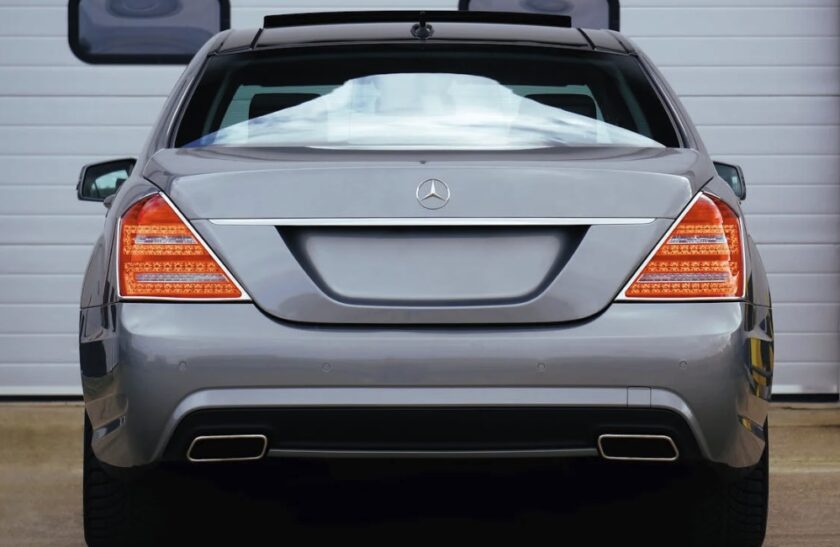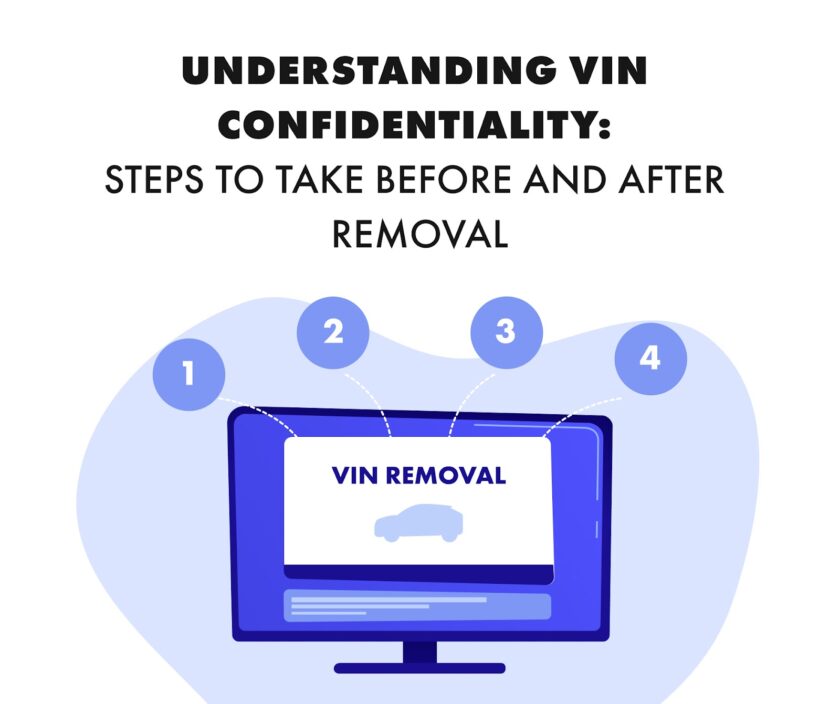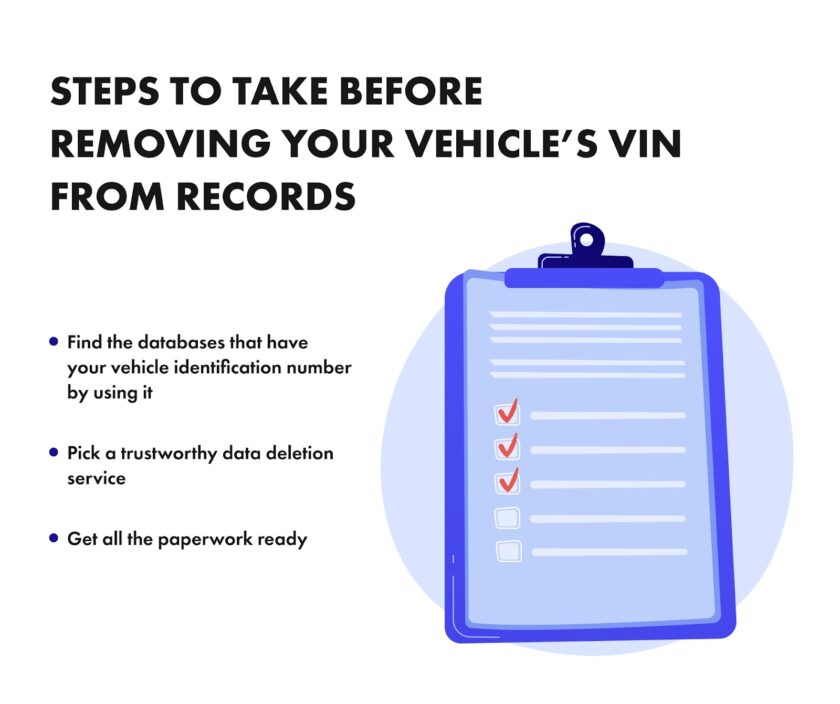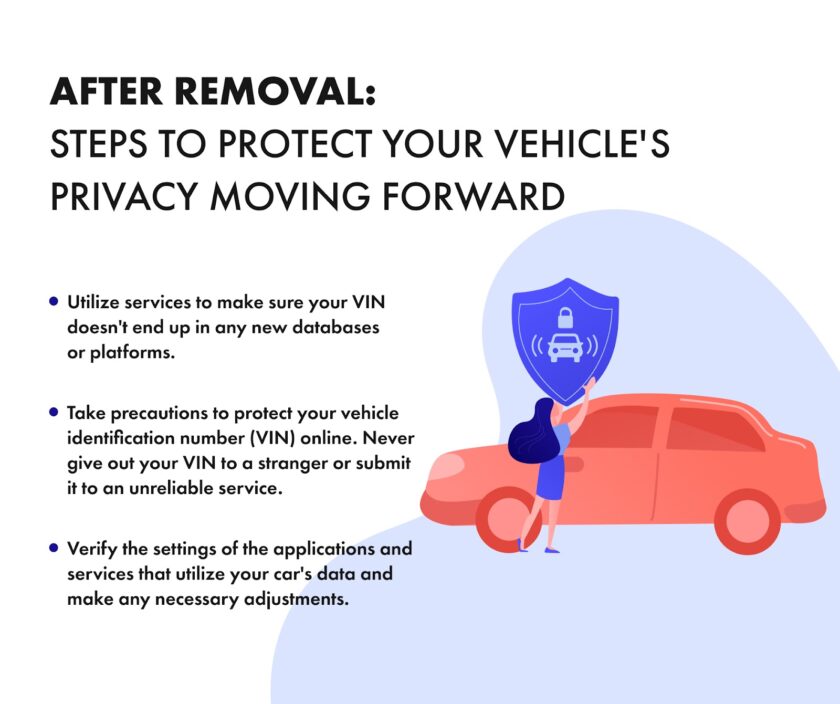How to Protect Your VIN Confidentiality: Essential Steps Before and After Removal

All vehicles rely heavily on the Vehicle Identification Number when it comes to vehicle ownership records and maintenance. For vehicle owners, it acts like a fingerprint, divulging crucial details about their car’s past, including its history, maker, and specifications. However, there are situations when removing or altering a VIN is necessary, such as when fixing a vintage vehicle or fixing issues with a salvage vehicle.

The technical and legal complexity of the method of removing VIN history from Stat Vin can be overwhelming for novice users. By dividing the method into manageable segments, this step-by-step guide simplifies it. To help you comfortably navigate this process, we will examine the legal considerations and motivations for VIN removal and provide a comprehensive, systematic plan. Whether you’re a car enthusiast looking to sell your car to potential buyers or just want to maintain privacy, this guide will give you the knowledge you need to properly handle and erase your car history. Protecting your VIN can enhance your vehicle’s resale value and offer significant customer benefits by ensuring your personal information remains confidential.
Why VIN Confidentiality Matters for Your Vehicle’s History
Just like a “fingerprint” on a person, the VIN numbers identifies your car. Law enforcement, insurance firms, and dealers all utilize it to find out the car’s past, including previous owners, accident records, and what repairs were done. Identity thieves may conduct fraud using your VIN and other sensitive information, according to the FTC. Several issues may arise if this data gets into the wrong hands:
- Criminals may forge paperwork claiming to be for stolen automobiles using your VIN.
- Criminals might try to obtain your financial data by linking your VIN with other personal information.
- Someone may use your VIN for illegal purposes, which might get you in hot water with the law.
- Some dishonest people could try to raise your rates by filing bogus insurance claims using your VIN.
- Your privacy is at risk since your vehicle identification number (VIN) may be used to monitor your whereabouts and activities.
- The market and the safety of other drivers may be jeopardized if counterfeit components made using your VIN were to be sold.
- Fines and infractions that you did not commit may be recorded against your vehicle identification number (VIN), which may lead to financial hardship and the need to prove your innocence.
In addition to ensuring your own safety, safeguarding your VIN may help you avoid a host of other issues. You can keep command of your car’s history and steer clear of trouble if you take care of this data.
How Your Vehicle Identification Number Reveals Your Car’s History
The normal VIN format has 17 characters, divided equally between letters and digits. Although I, O, and Q are excluded to avoid confusion with 0 and 1. There is a purpose behind every letter and number.
- VIN contains information about the car’s manufacturer in the first three characters. One other name for these three numbers is the WMI, or global manufacturer code.
- The model, type, and series of the vehicle are indicated by symbols 4–9.
- The model year is indicated by the symbol. This section details the first year of production for the vehicle.
- You may learn more about the location of manufacturing from the sign at position 11.
- The last string of numbers, from 12 to 17, is manufacturer-specific and describes the vehicle’s unique features.
The NHTSA provides further information on how to decipher your vehicle identification number (VIN).
Reasons to Consider Deleting VIN History for Privacy
The safety of your car and personal information depends on keeping your VIN secret. The best way to safeguard the VIN is to be aware of its significance and its potential use. The several reasons to keep this knowledge secret from others are as follows:
- To prevent fraud, it is a beneficial idea to keep your VIN hidden from prying eyes.
- Protecting your VIN is an important step in preserving your identity, since it is associated with your registration details.
- Criminals can’t forge papers or commit crimes with your VIN.
You may safeguard your car and your financial well-being by being aware of these dangers and then taking measures to prevent unauthorized access to your VIN information.
Steps to Take Before Removing Your Vehicle’s VIN from Records

Take your time and be consistent if you want to safeguard your privacy by removing your service records from different databases. Making use of expert assistance might simplify this process significantly, especially services that offer multilingual support for diverse vehicle owners. These are the worthwhile actions to do:
- Find the databases that have your vehicle identification number by using it. First things first: make sure you’ve looked into every possible internet platform and service that may save information on your automobile. Websites that sell cars, services that look up a vehicle’s history, and other public databases fall into this category.
- Pick a trustworthy data deletion service. You may find businesses online that focus only on erasing private data. Choose the most dependable and effective service by reading reviews and looking at ratings.
- Get all the paperwork ready. Verification of identification and vehicle registration may be necessary for data erasure services. Get out all the required paperwork, such as your driver’s license and proof of insurance.
If you follow these instructions and use professional services like HideAutoVin, you can hide your VIN from databases and make your car much more secure.
The Process of VIN Removal: What to Expect
To ensure the service’s quality and transparency, VIN clean history is a multi-stage process. Each step is critical. If you want to know how it works, look at the algorithm below:
Submitting a request
Submitting an application is the first stage. The client expresses their requirement for VIN removal by giving some basic information. You may now begin processing the request and forward it to the specialists.
Providing explicit order information
After receiving your request, the firm will reach out to you to discuss. Since they understand your demands, they can customize a solution.
Finances related to the service
Making a payment is the next step. The experts will next use tried-and-true procedures and cutting-edge tools to finish the job.
Reporting and VIN removal
Eliminating the VIN is the last step. After the task is finished, you will be sent a report that verifies the service’s completion and includes all the essential details.
With this methodical technique you can easily delete car history.
How VIN Removal Works and What It Means for Your Vehicle’s History
The disclosure of your vehicle’s information to other parties will be altered when VINs are removed from databases. The process is as follows:
- Data deletion: Typically, services will erase your data by asking that VIN entries be canceled or removed using database queries.
- Data access controls: If a database is unable to permanently remove car history, it may disable public search access to it.
- Effect on car records: Deleting a VIN makes your car information invisible to public records, making it more difficult for someone to steal your identity. No one will be able to see past accidents reports and other information.
Keep in mind that if you want to delete VIN history, it will not impact official documents like a car’s registration or title. Both insurance companies and law enforcement agencies have access to this data.
After Removal: Steps to Protect Your Vehicle’s Privacy Moving Forward

It is critical to maintain the following privacy safeguards once your VIN information has been erased:
- Utilize services to make sure your VIN doesn’t end up in any new databases or platforms.
- Take precautions to protect your vehicle identification number (VIN) online. Never give out your VIN to a stranger or submit it to an unreliable service.
- Verify the settings of the applications and services that utilize your car’s data and make any necessary adjustments.
Your VIN will remain out of the public eye for as long as you adhere to these rules.
Key Considerations for Ensuring Long-Term Confidentiality
To secure your privacy long-term, consider these factors:
- Research the regulations of your nation to ensure that the procedure for erasing VIN data is legal.
- By using only reputable businesses that focus on data security, you can be certain that your information will be safe.
- To react quickly to any dangers, be informed about emerging fraud strategies.
- Do your homework on the privacy policies and evaluations of services and apps before you trust them with your VIN.
Constant vigilance and following protocols are necessary to safeguard VIN privacy over the long term. You may safeguard yourself against fraud and other dangers linked to revealing this information by adopting a thorough strategy.
Conclusion
Always exercise caution when providing your VIN information and keep your data secure. Avoiding fraud and identity theft is a critical issue, so identify the hazards and secure your car and personal information.
Spotted something? Got a story? Email: [email protected]
Latest News
